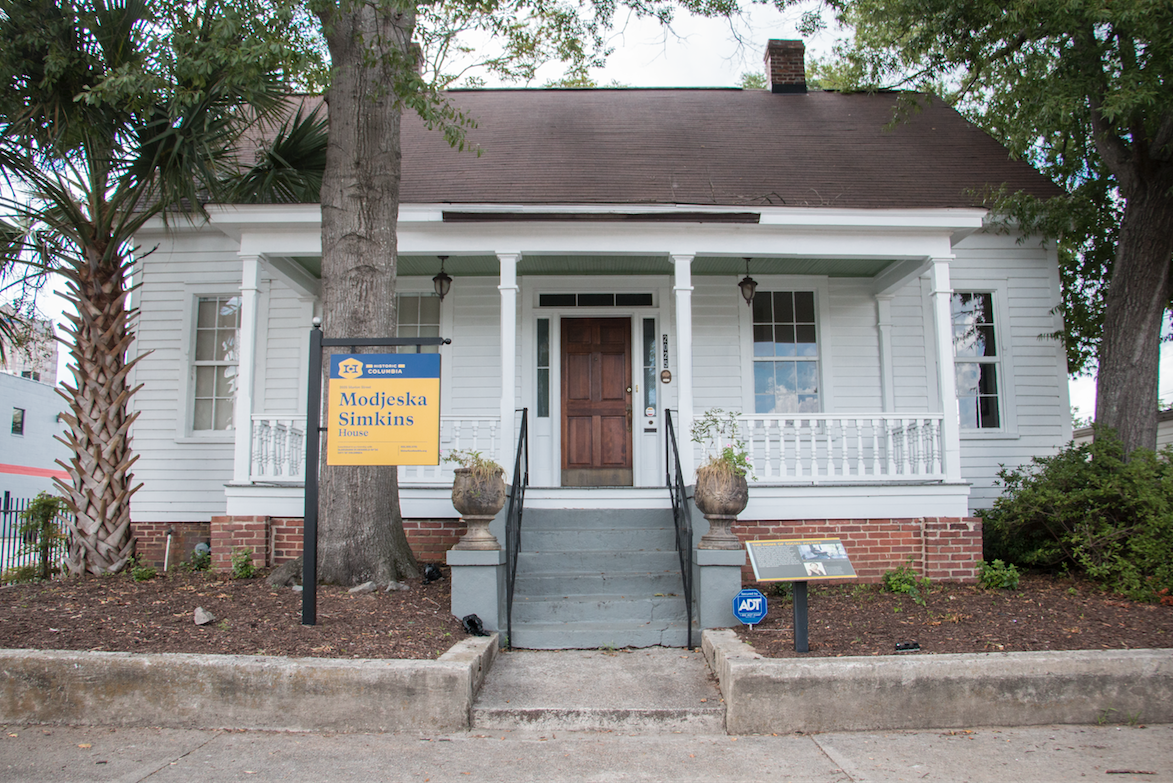Modjeska Monteith Simkins: An Advocate for the People
Thursday, February 21st 2019

Modjeska Monteith Simkins was born in Columbia, S.C. on December 5, 1899, into a society that legally dispossessed women and people of color of their civil liberties.
Over the course of her 92 years, she displayed a courage and perseverance that many argue was unmatched. Today, Simkins is rightfully lauded as a major pioneer in South Carolina’s Civil Rights Movement as well as an advocate for healthcare, women’s rights and the environment. Her life’s work has resulted in numerous accolades from media outlets, friends and her many mentees over the last several decades. As we approach the 120th anniversary of Simkins’ birth, Historic Columbia embarks on an awareness campaign to honor her life, her legacy and her home.
"I woke up this morning with my mind set on freedom." — Modjeska Simkins
Simkins lived at 2025 Marion Street, a house built in the 1890s, from 1934 until her death in 1992. After becoming the contractual steward of this city-owned landmark in 2006, Historic Columbia endeavored to keep the former home and its dependency available to school groups and community meetings. (The site was home to the South Carolina Progressive Network and ColaSC63 until 2018.) The site is currently closed while it undergoes a substantial rehabilitation funded by the National Parks Service. This work includes repairs to the interior plaster and the brick foundation, window restoration, a new HVAC system and updates to plumbing and electrical systems, as well as a paved driveway with new handicap parking space and ramp.
To complement the physical work at the site, Historic Columbia’s Cultural Resources Department, in partnership with scholars and archivists, plans to disseminate comprehensive documentation of Simkins’ life and the causes and organizations she championed during the early Civil Rights Movement. Simkins leaves behind a substantial oral history archive, including more than seven hours of discussion about her life with noted Professor Emerita of History Jacquelyn Dowd Hall (UNC Chapel Hill). These recordings, in conjunction with various memorials, provide the foundation for our primary goal: to emphasize and contextualize the same set of facts and fundamental truths that Simkins used in her lifelong fight against what she called “the power structure.” By doing so, we hope to broaden the public’s understanding of individual issues prevalent in Simkins’ lifetime – such as unequal access to health care, economic discrimination based on race, gender, and class, and denial of the ballot – and how they continue to resonate today.

Throughout the spring, Historic Columbia and its partners will publish a series of short essays that will closely examine different aspects of these issues as they relate to Columbia and Richland County. The first will examine the history of African American tourist homes in Columbia found in the Green Book, including Motel Simbeth, owned by Simkins, as well as the use of 2025 Marion Street as a place where key Civil Rights figures, including Thurgood Marshall, often stayed and strategized. Another will contextualize the reports written and published by Simkins in her role as Director of Negro Work for the South Carolina Tuberculosis Association from 1931 until 1942, a position that gave her direct access to a variety of quantitative and qualitative data on the differences in health care for white and black South Carolinians. Other planned topics include the 1946 meeting of the Southern Youth Legislature (Southern Negro Youth Congress), held in Columbia and co-organized by Simkins, and hyper-local examinations of Simkins’ involvement in landmark cases, including Elmore v. Rice and Briggs v. Elliott.
By utilizing relevant primary documents in innovative ways, these stories will create the framework for engaging directly with visitors of all ages, whether through lesson plans addressing civil rights issues, public programming featuring past, present and future community leaders, or by serving as inspiration for citizens that will use the site as a maker-space.
Simkins’ personal letterhead once included the phrase, “An advocate for the people.” Historic Columbia, in partnership with the family of Modjeska M. Simkins, plan to return her home to a place that is central to engagement and action for the community—one that can aid others in advocating for the rights of humans.
Header image: Modjeska Simkins photographed inside her home on Marion Street by Ginger Pinson on November 13, 1984. Image courtesy of The State Newspaper Photograph Collection, Richland Library